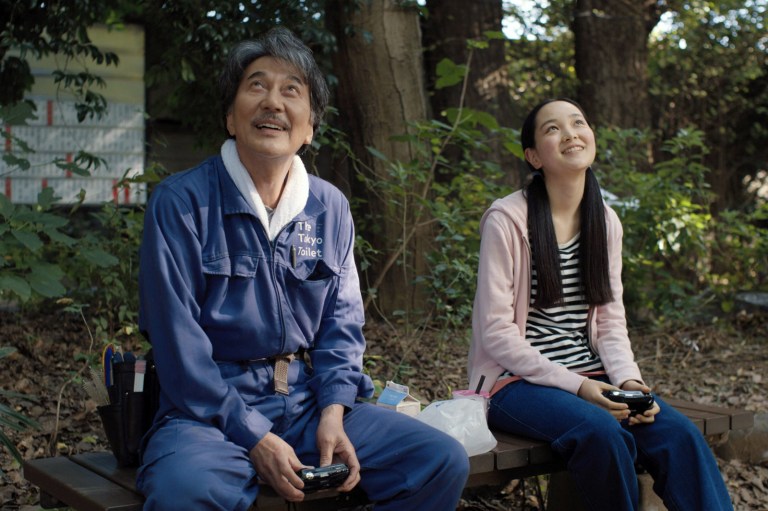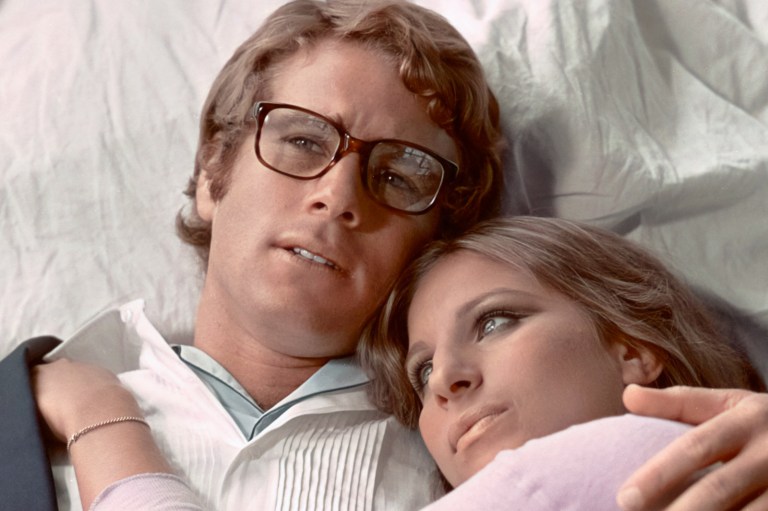
What I Learned From A Year Of Doing Improv (Besides That I’m Terrible At Improv)

Something that improvisers love to tell non-improvisers is, “Everyone should take an improv class once.”
And I’m not sure I agree with the phrase. Improvisational theater can be helpful in a plethora of ways – it can help with public speaking. It can help with social anxiety. It can help even the most tightly-wound person relax and have fun for several hours a week.
But it’s also just not for everyone.
I spent a year of my life trying hard to love improv.
I liked the cult-ish culture surrounding it. I liked the people who engaged in it. I liked ‘belonging’ to a particular theater. I liked the routine of going to classes and drop-ins and shows, particularly as I was settling into a new city and trying to carve out my place.
But I just wasn’t cut out for improv. The longer I kept at it, the clearer this fact became. It was not stress-relieving or skill-building or life-changing for me. And that’s okay. I’m good at a lot of things, but making up hilarious scenes on the spot is not one of them.
So this past Saturday, I performed in my last show at the People’s Improv Theater in New York… and then I packed up my theoretical improv bags and checked out of the scene for good.
But I can’t say that the eleven months I spent studying improv didn’t teach me anything. It just so happens that the things it taught me were more applicable off-stage than on. Improv didn’t make me into a better comedian, but it nonetheless taught me some damn important life lessons. For example:
1. When someone expresses a feeling – even feebly or in passing, you cannot let it slide.
In life and in improv, I have a tendency to gloss over the details and move directly towards whichever ‘big exciting idea’ I’m focusing on in the moment. In improv, you cannot do this. In improv, if you’re gunning towards the action and ignoring an emotional comment, you’re sacrificing the potential for a damn good scene. Because the meat and potatoes of improvisational comedy isn’t invention – it’s emotion.
And it turns out that’s the meat and potatoes of relationships, too (who would have thought?).
Improv turned me into a better listener. It made me a better friend and a better partner and a better daughter. Because instead of glossing over comments like ‘My day was okay,’ I learned to backtrack. To ask for an explanation of what ‘okay’ actually means. To refuse to let the small, emotionally loaded comments slide. Because they matter in improv. And they matter in life.
2. Trying to impose your ideas often squashes the cool thing that might have happened if you’d just gone with the flow.
More often than not in improv, you’re going to walk into a scene with a brilliant idea burning in your mind, only to have your scene partner suggest something completely opposed to whatever you were thinking. A good improviser accepts their scene partner’s idea and goes with it. A bad improviser tries to fit the round peg of their idea into the square hole of the scene, making for a confusing and nonsensical exchange.
I am not a go-with-the-flow person – in or outside of improv. But the longer I spent studying comedy, the more I began to understand that holding onto the way I wanted things to go only robbed everyone of the awesome direction things could have gone in, if I’d just focused on the scene that was happening in front of me, instead of the alternate one that was happening in my mind.
It turns out this rule applies to basically every aspect of our lives. It’s really hard to be happy with where we’re at if we’re endlessly pining over the way we wished things had gone. So instead of obsessing over that alternate script, throw it away. Show up to your improv scene. Show up to your life.
Nothing good’s going to happen if you don’t.
3. If you fail to show up with a ‘deal,’ there’s a good chance nothing interesting is going to happen.
There are very simple rules to character work in improv (there are probably also very complicated rules to character work in improv, but I didn’t advance far enough to learn them). And one of the most basic rules is that you have to come into every scene with a ‘deal.’
Your ‘deal’ can be an emotion. A desire. A backstory. But it has to be something that will make your character interact with the scene in an interesting and dynamic way. Because bending or conforming to whoever your scene partner wants you to be isn’t interesting. It doesn’t create any tension. It doesn’t get you anywhere.
And it also doesn’t get you anywhere outside of the improv theater. Trying to mould or shape ourselves into whomever others – or our circumstances – want from us is the recipe for a static, uninteresting life. No tension gets created that way. No stories form. And our characters certainly do not develop.
We have to hold onto our ‘deals’ – be they our passions, our backstories, our goals – no matter where we go in life. Our ‘deals’ are what keeps our stories interesting. Our ‘deals’ are what push things forward.
4. When you’re arguing, remember why you’re in the room with the person in the first place.
Good improv stems from cohesion, not conflict. But every once in a while you’re bound to get into an argument on stage – and there’s always a simple way of diffusing it.
In the words of my most recent teacher, “If your character hates your scene partner’s character, why are they in the same room? There has to be something keeping both of you there. Remember that thing. Circle back to it. Use it to diffuse the argument.”
And it turns out this works for real-life arguments as well.
Sure, you’re furious with your partner or your coworker or your friend, but there’s also something you love about them. There’s a reason you’re having this argument in the first place.
So in the heat of the moment, try to remember that. Try to circle back to it. Try to remind yourself that you’re ultimately searching for a resolution that keeps you both happy. Because the biggest, most rational part of you wants that. If it didn’t, you wouldn’t still be in the room.
5. You don’t get any points for ‘winning’ a scene.
It’s easy to get so caught up in arguing on stage that you forget the argument isn’t the point of the show. It isn’t even the point of the scene.
The point of the scene is for the characters onstage to work together. To develop the plot. To keep the audience laughing. And trying to dominate the scene or steal as much personal stage time as possible accomplishes none of those goals. It just makes you and all your teammates look bad.
Which happens to be exactly how the real world works, too. We all get caught up trying to win arguments. Trying to keep the spotlight on us. Trying to voice our opinions or ideas above everyone else’s, because we feel good when our opinion wins out.
But that kind of interaction doesn’t help any of us in the long run. It doesn’t foster relationships or move us forward productively or even make for a particularly satisfactory life. Cohesion, collaboration and agreement move us forward much more than disagreements ever will.
Sometimes you have to let your character ‘lose’ a few scenes so that you can collectively win the show.
Now if only we could start applying the same logic off-stage. ![]()











